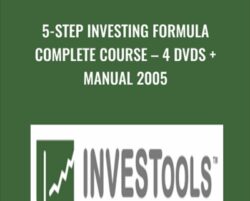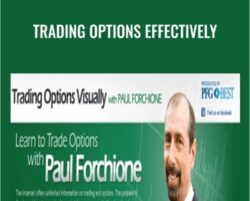What do millionaires know aboutinvesting, spending, risk, saving, and freedom that 99% of people don’t?Go inside my advanced money management system — What I invest in, who I work with, how I protect myself, and what I buy … and how these changed as I got more advanced.It’s time to discover “what’s next.”“I checked all the boxes”I make good moneyI’m debt-freeI automated my investments“So why do I feel like I’m missing something?”Am I paying too much in taxes?Where do really rich people put their money?What do millionaires do that I don’t do?“What’s next?”I can’t talk about this with friends and family — they have no ideaWhat, some advisor? Do I even need that?I’m ready for moreHi, I’m Ramit Sethi, the New York Times best-selling author of I Will Teach You To Be Rich and the founder of IWT and GrowthLab.In 2009, I wrote the book on personal finance. It immediately soared to the #1 book on all of Amazon, sold out within hours, and became an instant New York Times best-seller.This book:My New York Times best-selling book on personal financeThis is the book that introduced a generation to a completely new way to manage your money — automating your finances, guilt-free conscious spending, negotiating against your banks and credit cards, and automatic low-cost investing to grow your money.Since then I’ve been called a “Wealth Wizard” by Forbes magazine (placed next to Warren Buffett), and the “New Guru on the Block” by Fortune magazine.The press is nice, but most importantly, I’ve helped tens of thousands of people take control of their finances, pay off their debt, negotiate away annoying fees, land better jobs, earn money on the side, start investing, and give themselves an entirely new outlook on life.Hearing from happy, successful students is one of the best parts of my day.I’m proud that my book has become a cornerstone on the fundamentals of personal finance.But what do you do once you’ve mastered the fundamentals?What do you do once you’re making a good income, you’ve paid off your debt, you have a comfortable emergency savings fund, and your investments are growing?I started to hear from more and more people who’d already done the basics and were left wondering:“What’s next?”These people were usually earning very good incomes and had a healthy investment portfolio. Telling them “Cut back on spending” was irrelevant. So was “just save more.” They’d already done that and still had money left over.What’s next? What are people at the next level — and the level after that — doing?These were the same questions I’d had to tackle myself as my net worth grew. Where should I be looking to invest now? How were other people in my situation handling risk? And did they change their spending?I knew there was more to personal finance than just automating my savings and 401(k).And I found it.Let me tell you what I learned about advanced personal finance.Before & After: How money changed my lifeI’ve seen money from both sides of the table — from growing up in a suburban middle-class family of 6 where my dad worked, my mom stayed home with us, and money was always tight — to living in Manhattan while I run a multimillion-dollar business.That journey has opened my eyes to so many aspects of money that I never would have imagined.Put yourself in the shoes of young Ramit, growing up in Sacramento, California.As a kid, I didn’t think about money a lot. It’s only looking back that I realize the frugality juggling game my parents, both immigrants from India, were playing to provide a healthy lifestyle for 6 of us. My mom cooked at home for almost every meal. We rarely went on vacations — and when we did, it was sack lunches and a road trip to see family in LA.It was a running joke how we squeezed all 6 of us into a single, budget motel room. But that’s what you have to do when you’re raising a big family on one income.I learned lots of money messages from my parents:“Don’t waste money.” My mom was a master of knowing what to buy at the grocery store to stretch our grocery budget. And, yes, cutting coupons.“Kids don’t really need the fanciest clothes.” I looked like a total dork (but I was focused on friends and school, not fashion).“When it’s important, we can find a way.” Any time we needed money for school or sports — a tutor, summer school, soccer uniforms — somehow my parents would come up with it.Those were the good money messages.But I also learned money messages that wouldn’t serve me later in life:“Finish every bite of food.” It’s not easy to feed a family of 6 healthy, home-cooked meals on one income, so there was a lot of pressure to not waste any food.“Save money above all else.” Saving money was always on our mind. Growing up, it was the primary lens to view anything financial through. There weren’t any other lenses, like “value” or “luxury.”Paying more is never worth it. If there was someone charging a higher price, they were trying to rip you off. Never mind that the quality might be better, or you might get better results, faster. This was a tough invisible money message to let go of.Growing up, price was always the #1 consideration. We’d drive our cars for 10+ years, and we’d comparison shop when buying anything. When we made decisions about where to eat or where to go, money was always a consideration — usually theconsideration. I couldn’t imagine what it would be like to not have money be the deciding factor.Now imagine something different.Imagine wanting to travel somewhere, then just deciding and buying a flight — not worrying about the price. Or trying to decide between two different meals that sound good at a restaurant … and then ordering them both. Or buying a Tesla because it’s cool.When I grew up, I got serious about personal finance.And I grew my money using the same system I describe in my book. I saved aggressively. I automated my low-cost investments. I started to explore the “edges” of my system, including maxing out my accounts and even making several angel investments.Suddenly, I wasn’t sure what to do next. I’d already maxed out my accounts — so what now?Where do you put your money when your income is too high for a Roth IRA?How do you think about risk differently as your net worth grows — should your asset allocation change at $250,000? $500,000? What about $5 million?What are the strategies and investments that wealthy people use? What do they know that the average investor doesn’t?What do the rich spend their money on?When do I need to start working with “advisors”? Who are these people, anyway?Is there anything I should be doing beyond plain index investing?What’s worth it and what’s not?It felt like I’d won the game and found myself back at square one.Now I was back in research mode (advanced edition). Fortunately, since I’d written a best-selling book on personal finance and I’d grown my business, I had access to more advanced people and resources.This time around, I spoke to other founders — people who had millions of dollars (some sitting purely in cash) — and asked what they did with their money. Where did they invest it? What did they spend differently on now vs. before?I talked to private advisors in NYC, venture capitalists, and private equity investors. I learned some interesting facts, but also a lot of fluff and nonsense.The best insights came from other successful high earners — some entrepreneurs and some employees — who had slowly mastered the advanced game of personal finance over the years. These people were not always easy to find. Some outwardly successful people had terrible personal finances, but some had proven to be extremely adept with their money.“Once you have a certain amount of money, nobody wants to talk about it.”In short, it’s no surprise that successful smart people spend lots of time applying their smarts to their money. The solutions they had come up with were often brilliant and counterintuitive. The hard part was finding people who would actually divulge their methods. As you know, once you have a certain amount of money, nobody wants to talk about it.They opened up to me. I interviewed dozens of them, pulling out all the advanced tactics, never-discussed strategies, and mindset shifts behind their finances.Then I took action. I took my own money and began building my own advanced personal finance system. I incorporated my own insights on psychology, risk, and systems. I “stress-tested” different advisors. I changed my spending to align with my own definition of my Rich Life.I think it’s safe to say little 10-year-old Ramit would be blown away by my life today.And one aspect in particular: Freedom.Most people who geek out on personal finance totally miss this point. They live their lives in Excel spreadsheets, optimizing for every last percentage point, but forget that life is lived outside the spreadsheet. Money buys you freedom — now how are you going to use it?How I spend my moneyToday, instead of worrying about money, I can proactively decide how I want to live my life. I get to choose what’s important and enjoyable to me and use my money to add more of it to my life.What’s important to you? Travel, relationships, convenience, luxury? Maybe it’s generosity or health or self-improvement? Or something else.Personally, I love convenience. It’s one of my core values. I love spending my money to make areas of my life easier, simpler, faster, and even hands-off.That’s why I spend $50,000 a year on a personal trainer, personal chef, and nutritionist. Now I don’t have to think or worry about eating well or staying in shape. I tell them my goals and they take care of all the details. All I have to do is show up.To others, this might seem crazy, but to me, I’ve consciously designed my Rich Life.That’s also why I’ve hired a full-time virtual assistant for the past 10+ years — it’s the best money I’ve ever spent.My VA manages my calendar, schedules all my calls and meetings, books my travel (she even knows my favorite seat on my favorite airline), handles gifts, and tons more.I even built an entire system to make sure that I would eat healthily when I travel — which my VA runs for me.One of my favorite conveniences: healthy food waiting for me at the hotel when I arriveAs you can tell, I’m a little obsessed with convenience. But all of this convenience means I can spend all that time saved on the things I love — like finding new hot sauces, exploring NYC, or just plain taking naps. Oh yeah, and working on growing my business!This can seem crazy to you — I know! Maybe you’re not obsessed with convenience like I am.But I bet you’re obsessed with something. And money could help you go deep, really deep, into it.3 examples of how my friends spend their money:One couple I know loves donating to charity. Each year they set aside time to research charities and decide on their giving plan. Then they visit the charities throughout the year.Another friend has a daily non-negotiable: her yoga class. And each year, she takes a 2-week trip to southern India for intensive yoga training.A third friend runs a business and loves luxury fashion. After each webinar, she takes 3% of sales and splurges on something she loves.When you learn how to manage your money at an advanced level, you can design the life you want to live. Your savings, investing, and even spending naturally change because you’re at an advanced level.So why don’t more people make the leap to advanced personal finance? Why do otherwise successful, driven, and intelligent people succeed in saving and earning more……but still keep operating with the same rules that they grew up with 20 years ago?The sad answer is no one’s ever told them how to do it.The NEW rules of Advanced Personal FinanceHere’s a lesson you don’t learn in PF 101:AS YOUR NET WORTH GROWS,THE RULES OF MONEY CHANGE.The wealthy are playing a financial game that most people don’t even know about. This can be uncomfortable, confusing, and even scary — but also exciting if you know the rules. The stakes are higher, but so are the rewards.However, no one is talking about this!Judging by the financial advice online, everyone else is trying to save $50, to pay their next credit bill, or — if they’re really “advanced” — to live like a pauper so they can stick it to the man and retire at 30 (for another 50 years of hobbies like going for walks and visiting the local museum on free days).That’s not the life I want to live.If you’re successful, you can’t talk about it with your friends or family. Best case scenario, they think you’re whining. “Must be nice to have problems like that.” Worst case scenario, you start seeing odd displays of jealousy and anger. Expecting you to pick up the check every time. Grumbling when you take another vacation. Or asking you to invest in a hare-brained scheme.Who can you talk to?Where do you turn to for new information?How do you stack up against other people like yourself?You’ve already maxed out your 401(k) or make too much to contribute to a Roth IRA — congratulations on your success, btw — but what do you do then? How do you find help when you have more complicated problems and bigger goals than 99% of everyone else?As your net worth grows, some of the financial tactics you were using stop making sense. Beliefs that helped you when you first started are now holding you back.“Save, save, save!” …but what happens when you’ve already saved enough? What, just “save more”? How much is enough?“Automate your finances and move on” …but now you have your 401(k), Roth IRA, your partner’s investments, a bit of real estate, you’re thinking of having kids, etc. Things are getting complicated…“No one cares about my money as much as me” …but you keep running into financial questions you don’t have the answers to. Who do you turn to? Commission-based salespeople who masquerade as “advisors”?“Just focus on index investing” …which you’re doing, but you keep hearing about things other people are doing, like real estate and cryptocurrency. You have a lot of extra cash. What else should you be doing with it?“If I just save enough money, I won’t have to worry anymore” …but the great irony is that you still worry even though you’ve saved a lot. What would it feel like to take that one worry you have — money — and have it vanish?If you want to master the level you’re at now, you have to reconsider each of these beliefs.You made it this far because you worked hard, you stayed disciplined, you didn’t listen to get-rich-quick schemes, and you followed a proven system. You’ve already won.The next step is learning how to protect, keep growing, and enjoy the freedom you’ve earned.Are you ready for Advanced Personal Finance?The first requirement for building your own Advanced Personal Finance System is taking care of the fundamentals of personal finance. These are the basic blocking and tackling of finance I map out in my book:Paying off any non-mortgage debtUsing 401(k)s or IRAs to invest in your retirementBuilding an emergency savings netBut once those are done, how do you know if you’re ready for Advanced Personal Finance? There are a few signs. Read below — how many of the following apply to you?The 10 signs you’re ready for Advanced Personal Finance10. You’re earning 6 figures or your net worth is over $100,0009. You’ve already read and implemented most of the strategies in my book8. You’re facing new PF challenges — kids, multiple investment accounts, aging parents, etc. — and need more advanced help7. You update a spreadsheet at least once a month to track how much time you have until you reach “your number” and are able to retire6. You’re maxing your contributions to your 401(k) or Roth IRA and want more5. You’re earning a high income, but still feel guilty spending money4. You have no one around you to talk about money with3. You impulsively read personal finance blogs even though you already know exactly what they’re going to say2. You’re bored of index investing and want to take a swing at a high-risk, high-reward investment1. You’re doing well for yourself and keeping asking “OK, what’s next?”If you said “That’s me!” to any more than three of these, it’s time.Create the life you wantIt’s time to discover what millionaires, CEOs, and thereally rich know about money that 99% of people don’t.What do you want more of in your life? More fun? More luxury? More time? More travel?You can create the life you want. I’ll show you how. (And I’ll show you the things you’re not thinking about but should be.)It’s time to protect all your hard work, to grow it and enjoy it.It’s time to move past the basics and take your personal finances to the next level.Introducing…Get my Advanced Personal Finance System and find out what millionaires know about investing, spending, risk,saving, and freedom that 99% of people don’t.How to Win the Game of Advanced Personal Financeis a brand new online course that gives you an insider’s look at how high net worth individuals manage their money.This is advanced — we focus on the questions, challenges, and opportunities unique to individuals who have already mastered the basics and want to know “What’s next?”This is fast — we’ve condensed everything into 13 detailed lessons. Take it at your own pace and revisit whenever you want.This is practical — we’ve included worksheets, tools, scripts, case studies, checklists, and quick-start guides to make it easy to apply what you’ll learn to your own finances.How to Win the Game of Advanced Personal Financewill show you how the rules change as your net worth grows — and how to keep winning.What do millionaires and elite financial planners know about money that others don’t?What do they care about? What do they do differently? And most importantly, how do they do it?How to Win the Game of Advanced Personal Finance takes you inside my own advanced personal finance system…How I use a “Personal CFO” to manage all of my finances — stress-free — without losing controlThe psychological changes of managing money at advanced levels, including how I think differently about saving, investing, andspendingAdvanced tax optimizationsSee my exact asset allocation, the exact funds I use, and most important, the strategy behind WHY I organize my investments this way30 important life events that present opportunities to optimize taxes and take advantage of investment opportunitiesHow I work with each member of my personal finance team — including my Personal CFO and accountant. Plus, real examples of building your own team of advisorsThe red flags to watch out for when hiring a CPA or other financial advisor — don’t ignore theseHow much you should spend on your financial advisors (don’t spend more than this!)The 3 most common invisible scripts that hinder advanced personal finance — and your happinessHow to “lean into” where you want to spendmore — whether it’s convenience, luxury, travel, charity, or relationships. Including detailed examplesWhy the key levers of the CEO Mindset are the keys to advanced personal finance successAnd that’s just a sample of the insights packed into this course.If you’re ready to make the leap into advanced personal finance, you’ll learn what to do, when to do it, why it’s important, and how to actually make it happen.That’s not all, though. I’ve also packed the course with a whole slew of useful worksheets, tools, and templates to make shifting into advanced personal finance easy and clear.Join today and unlock these extra worksheets, tools, and templatesEach of these is a major opportunity for savings, if you know what to look for and who to askFast-track your results with these ready-to-use email scriptsI’ll show you how to outsource implementing the strategies in the courseGo deep on advanced topics with bonus case studiesStep-by-step instructions for building your own financial teamThis program is full of fun, eye-opening challenges to show you how millionaires think about spendingThis course is ADVANCED. It’s not for everyone.If you have credit card debt, you shouldn’t join.If you’re still struggling to implement most of the fundamentals in my book, you shouldn’t join.If you’re a frugality zealot, this isn’t for you.If you’re looking for some insider stock tips or get-rich-quick tips on secret investments, why are you reading this?If you are not earning six figures or don’t have a net worth of at least $100,000, you’re not ready for this material. Keep working, keep saving, keep investing. You’ll get there.But if you are a high earning or high net worth individual who’s mastered the basics of personal finance and wants to know “what’s next?” this course is for you.Your path to Advanced Personal FinanceOne more question:Is this the only way to learn how to win the game of Advanced Personal Finance?No, of course not.I’ve already walked you through the long process I went through to discover all the hidden ins-and-outs of Advanced Personal Finance.You could do the same:Spend nearly a decade and a half studying and teaching personal financeCreate a finance site that lets you privately discuss money, tactics, and psychology with hundreds of thousands of peopleLeverage that success to gain access to financial planners and consultants not available to the general publicHire multiple lawyers, insurance agents, accountants, bookkeepers, and more to learn how to separate the experts from the quacksBuild and optimize a system that gets all of these pieces working together, seamlesslyI listed all of that out to impress upon you that there is a reason most people don’t know how to play — let alone win — the game of Advanced Personal Finance. It can be a long, complicated, and exclusive road. You can’t DIY. And what you don’t know could cost you hundreds of thousands of dollars — even millions — over your lifetime.But it doesn’t have to be difficult or mysterious anymore.An insider’s look at my personal financial systemWhen you join How to Win the Game of Advanced Personal Finance, you’ll get a behind-the-scenes look at my complete financial system:How I allocate my investmentsWhich experts I consult (and which I ignore)Who’s on my “financial team” and exactly what they do (plus scripts to make it plug-and-play easy for you to use as well)When I was learning Advanced Personal Finance, one of the most eye-opening and helpful things a few people did for me was to show me their exact investment portfolios, asset allocations, and all of the things their advisors did for them.The first time I saw it, my jaw dropped.I want to do the same for you. That’s why I’ve included two additional bonus items in this course.Ramit’s Investment Portfolio — This is a breakdown of my current asset allocation and investment portfolio, plus the thinking behind it. (This alone is worth the price of admission.)25 Tasks My Team Does for Me — The best part of Advanced Personal Finance is that you don’t have to be the one to make it all happen. This bonus item shows you the wide variety of tasks my financial team does for me.It’s time to uplevel your financial gameYou know why I created this program? Because once I got the basics of money in place, I started realizing there was a lot more to talk about.Like you, I started out just trying to save my first few thousand dollars. But once I hit the point where a few thousand dollars is a rounding error, what changes?This was radical for me — it meant I didn’t have to worry about cutting back on everything, or trying to save money (which was the invisible script I grew up with). Once your entire financial identity changes, what does it mean for the habits and systems you’ve been building?I also noticed that once my financial situation reached a certain state, there were very few people I could talk about it with. When it comes to this stuff, who can you talk about it with? Who do you know that really “gets it” and is willing to have a conversation with you?Looking back, once I got to an advanced level, I didn’t know what I didn’t know. I had checked all the obvious checkboxes … what else should I be worrying about?I wanted to hire someone to help with the day-to-day. What should I be looking for and how do I avoid getting ripped off?I noticed other people like me getting bored with target-date funds. What are these rich-people investments that everyone talks about?I even noticed this with simple things like spending. I wanted to start buying nicer clothes and eating at better restaurants. But what are the right places to go? Am I really “that guy” now?These are questions that almost nobody talks about! But I had them — and I know you do, too.It’s so rare to get the chance to talk about these things with others just like you. If you tried to talk about these things to most of your friends and family, they probably wouldn’t understand. But by joining this program, you will get that chance.It’s time to uplevel your financial game.Get How to Win the Game of Advanced Personal Finance – Anonymous, Only Price 59$Tag: How to Win the Game of Advanced Personal Finance Review. How to Win the Game of Advanced Personal Finance download. How to Win the Game of Advanced Personal Finance discount.
 5-step Investing Formula Complete Course – 4 DVDs + Manual 2005
5-step Investing Formula Complete Course – 4 DVDs + Manual 2005
 Trading Options Effectively – Paul Forchione
₹3,818.00
Trading Options Effectively – Paul Forchione
₹3,818.00
How to Win the Game of Advanced Personal Finance
₹9,130.00





